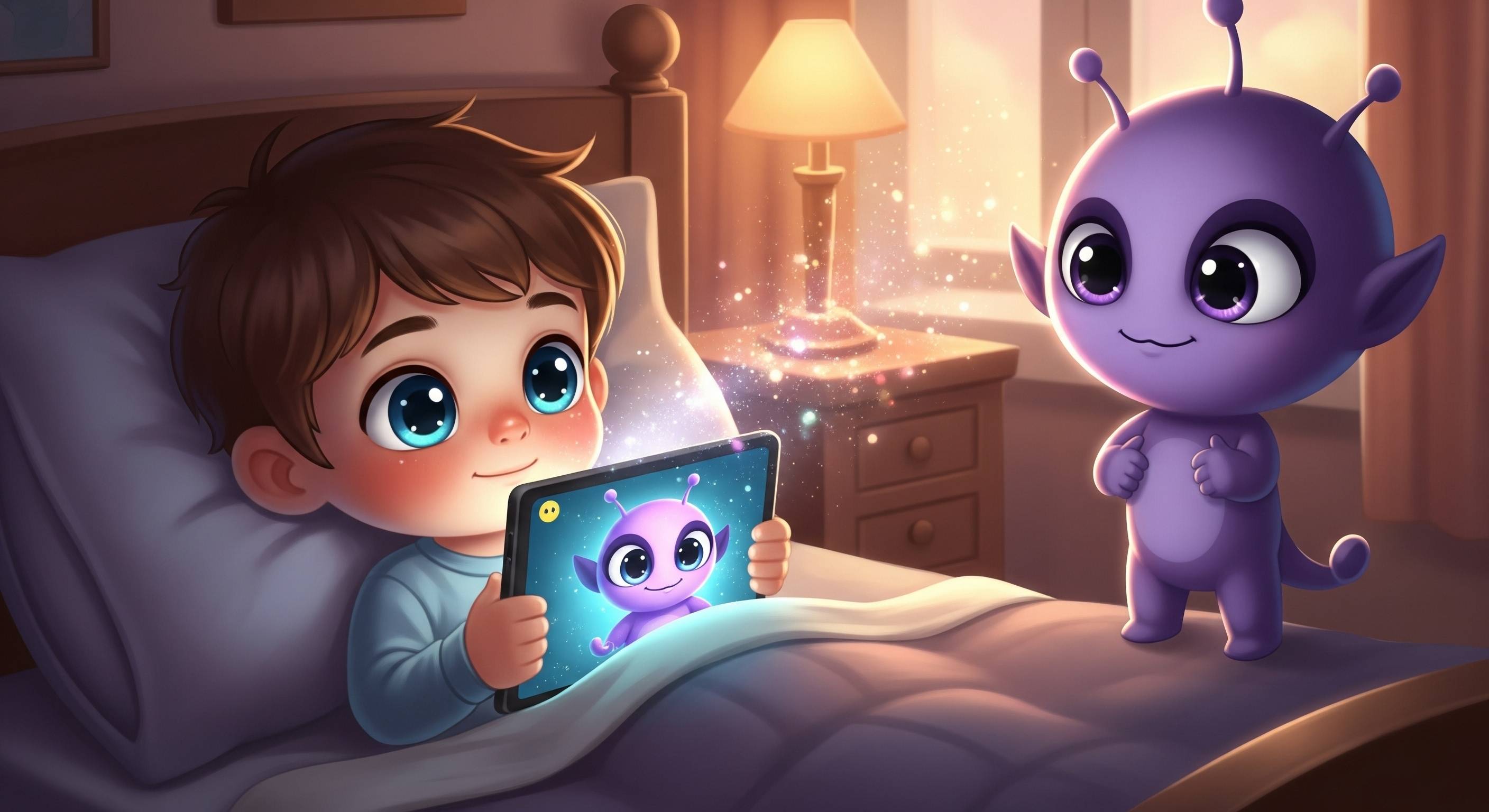As parents, we aim to find a balance between relaxation and sleep for our kids. Creating a bedtime routine can be tough. But, with the right advice, we can teach our children to sleep well.
The allure of electronic devices is strong. Yet, it's key to control screen time at night for a good night's sleep. This article will look at how pre-bedtime screen use affects kids' sleep. We'll also give tips for various age groups.
Key Takeaways
- Understand the impact of screen time on children's sleep patterns.
- Learn how to create a calming bedtime ritual for your child.
- Get recommendations for managing screen time at night for different age groups.
- Discover tips for promoting a restful night's sleep for your child.
- Find out how to establish a healthy balance between screen time and sleep.
The Effects of Evening Screen Exposure on Children's Sleep
As night falls, screens in our homes can harm our children's sleep. The screen's glow might be captivating, but it's not harmless. It can really mess with their sleep patterns.
Sleep is key for kids' growth, affecting their health and mood. So, it's vital to know how screens at night affect their sleep. This helps us teach them better bedtime habits.
How Blue Light Disrupts Natural Sleep Cycles
Smartphones, tablets, and computers give off blue light. This light can stop the body from making melatonin, the sleep hormone.1 This makes the brain think it's daytime, making it tough for kids to fall asleep. Screen time in the evening can make their sleep less quality.
The exciting content on screens also keeps kids' minds active at bedtime.2 It's not just the light; it's the engaging digital stuff too. ... [truncated]
Screen time before bed can mess up kids' sleep patterns. This is because digital devices give off blue light. This light can mess with the body's natural sleep cycle. The American Academy of Pediatrics has some rules. For kids aged 2-5, limit it to 1 hour of educational shows. School-age kids should have screen-free time at least an hour before bed. Parents can set a digital device curfew. They can also make screen-free zones in the house. Encourage reading or relaxation to help kids wind down before sleep. Look out for trouble falling asleep, waking up a lot at night, and mood swings. If a child has trouble sleeping or seems tired all the time, it might be because of too much screen time before bed.... [truncated]
Discover how personalized bedtime stories can create a calming and screen-free routine for your child. Start your free trial today!FAQ
How does screen time before bed affect children's sleep?
What are the recommended screen time limits before bed for different age groups?
How can parents manage screen time effectively before bedtime?
What are some signs that a child's bedtime screen use is becoming problematic?
Works Cited
Annotation: This guide explains that blue light from screens suppresses melatonin, the sleep-promoting hormone. It recommends creating a relaxing, screen-free bedtime routine at least one hour before sleep.
https://www.sleepfoundation.org/how-sleep-works/how-electronics-affect-sleep
Annotation: This article from a leading children's hospital notes that the content on screens can be stimulating, making it difficult for the brain to wind down for sleep. It confirms the link between screen time and delayed or reduced sleep.
https://www.childrenshospital.org/stories/screen-time-and-your-childs-sleep
Annotation: This resource highlights the negative effects of excessive screen time, including sleep problems, lower grades, and higher rates of obesity and mood issues.
https://www.aacap.org/AACAP/Families_and-Youth/Facts_for_Families/FFF-Guide/Screen-Time-and-Children-054.aspx
Annotation: This press release outlines the AAP's official guidelines, including limiting screen time to 1 hour per day for children 2-5, setting consistent limits for older children, and designating screen-free times and locations like bedrooms.
https://www.aap.org/en/news-room/news-releases/aap/2016/american-academy-of-pediatrics-announces-new-recommendations-for-childrens-media-use/
Annotation: This study found that reducing exposure to violent or age-inappropriate content and increasing pro-social co-viewing improved sleep problems, suggesting that the type of content matters. Interactive and violent content can be more stimulating.
https://publications.aap.org/pediatrics/article/130/3/492/30177/The-Impact-of-a-Healthy-Media-Use-Intervention-on
Annotation: This research suggests a direct link between high levels of screen time in toddlerhood and a greater likelihood of meeting the criteria for a diagnosis of ADHD by age five.
https://www.ualberta.ca/folio/2019/04/more-screen-time-for-toddlers-is-tied-to-poorer-developmental-outcomes-later-on-study-finds.html
Annotation: This guide provides tailored strategies for managing screen time for children with autism, including the use of visual timers and schedules to help with transitions away from screens.
https://www.autismspeaks.org/tool-kit/seven-ways-manage-screen-time-children-autism
Ready to Help Your Child Sleep Better?
